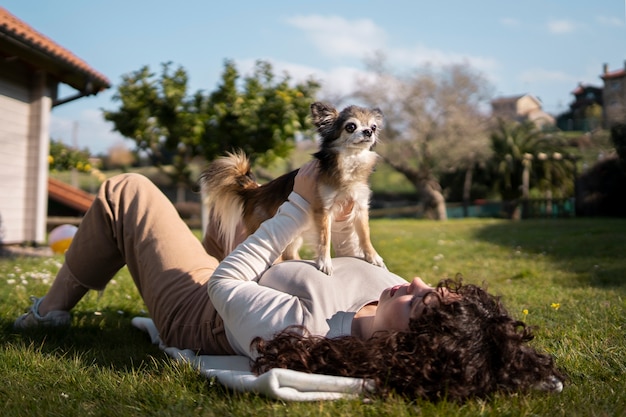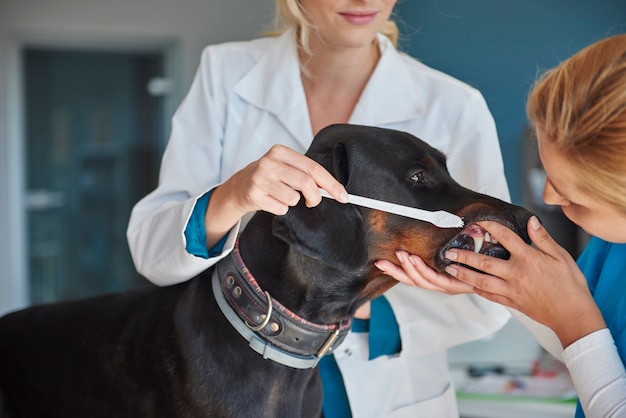Keeping Pets Comfortable in San Francisco’s Warm September Weather


Keeping Pets Comfortable in San Francisco’s Warm September Weather
As September arrives in San Francisco, pet owners often notice a subtle but important shift: the city’s famous fog gives way to some of the warmest days of the year. While many enjoy the extra sunshine, rising temperatures can pose unexpected challenges for both dogs and cats. At South Park Animal Hospital, located at 598 2nd Street, San Francisco, CA 94107, we understand how crucial it is to keep your pet comfortable in warm weather. This guide will help you spot signs of heat stress, adjust your daily routines, and make the most of the late-summer season with your companion. We will also offer practical San Francisco pet summer tips and explain when to seek veterinary care from a "vet near me" to ensure your pet’s well-being.
Throughout this blog, you’ll find guidance on recognizing overheating, understanding local climate risks, managing your pet’s comfort, and implementing preventive strategies. Plus, you’ll learn when it’s essential to schedule an appointment with our veterinary team so your pet can stay healthy year-round in San Francisco and surrounding communities. For more information about routine check-ups and preventive care, you can explore our wellness examination services.
Recognizing When Your Pet Is Uncomfortable in Warm Weather
San Francisco’s warm September days can feel delightful to us, but pets experience heat differently. Their ability to cool themselves is more limited than ours, making them more vulnerable to overheating. Spotting the early signs of discomfort is the first step to keeping your pet safe and happy.
Key symptoms of heat stress in dogs and cats include excessive panting, drooling, and restlessness. You might notice your dog seeking out tile floors or shaded corners, or your cat stretching out near cool surfaces. Additional signs are lethargy, red or pale gums, rapid heartbeat, and, in more severe cases, vomiting or staggering. In long-haired or brachycephalic breeds, these symptoms often appear sooner since these pets have a harder time releasing heat.
Changes in behavior are also important to watch for. If your usually energetic pup suddenly lags behind on walks or your cat avoids sunny spots she used to love, these could be early warning signs. Keep in mind that even indoor pets are at risk if air circulation is poor or if direct sunlight heats up certain areas of your home.
If you observe persistent signs of overheating, it’s important to take action quickly. Heat exhaustion can rapidly progress to life-threatening heatstroke if not addressed.
Why Pets Overheat: Understanding Warm Weather Risks in San Francisco
San Francisco’s unique climate creates both comfort and risk for pets. While foggy mornings are common, September brings periods of dry, sunny weather, often with little warning. Even on days when the temperature does not seem extreme, factors such as humidity, urban heat islands, and lack of shade can cause pets to become overheated faster than expected.
Dogs and cats primarily cool off through panting and a small amount through their paw pads. Unlike people, they do not sweat over most of their bodies, which means heat dissipates much more slowly. Flat-faced breeds like Bulldogs, Frenchies, and Persians are especially prone to overheating due to their shorter airways.
Other risk factors for heat stress include age, with senior pets and very young animals being more susceptible, as well as pre-existing health conditions or obesity. When pets are left in parked cars, even for a short period, the risk of heatstroke skyrockets. A car’s interior can reach dangerous temperatures in just minutes, even with the windows cracked and even if the outside air feels mild.
Urban environments, like downtown San Francisco and surrounding neighborhoods, often have fewer green spaces and more heat-retaining concrete. This can make midday walks more taxing for your pet’s body than you might expect. Recognizing these environmental risks is essential for pet comfort in warm weather.
Managing Pet Comfort: Professional Care and What to Expect
If your pet shows signs of overheating or if you are concerned about their ability to manage the heat, our veterinary team at South Park Animal Hospital can help. When you schedule an appointment for a comprehensive pet exam, our veterinarians will evaluate your pet’s hydration status, temperature regulation, and overall health. We may recommend diagnostic testing if underlying conditions could be contributing to your pet’s heat sensitivity.
For pets with chronic medical issues, such as heart disease or respiratory disorders, our team can create a tailored plan that addresses their unique needs during San Francisco’s warm months. Recommendations may involve adjusting medications, providing hydration support, or suggesting environmental modifications at home.
In some cases, dermatological problems like hot spots or skin allergies are aggravated by heat and humidity. If your pet is scratching, licking, or developing skin lesions, our dermatology services can address these concerns, helping to restore comfort and prevent infections.
Preventive care is another cornerstone of warm weather management. Our wellness programs include guidance on hydration, exercise routines, and seasonal parasite prevention, all of which are vital for maintaining your pet’s well-being during the late summer. If you have questions about nutrition or hydration, our nutrition counseling service can support your efforts to keep your pet healthy and comfortable.
Preventive Steps and Home Care for Pet Comfort in Warm Weather
Taking proactive steps at home is one of the most effective ways to safeguard your pet as temperatures rise in San Francisco. Adjusting daily routines is essential. For example, aim to walk your dog early in the morning or later in the evening when sidewalks are cooler, and always test pavement with your hand to ensure it’s safe for paws.
Hydration is the foundation of summer pet care. Always provide fresh, cool water in multiple locations around your home. Consider using ice cubes in water bowls or offering pet-safe frozen treats for an extra cooling effect. For cats, water fountains can encourage more frequent drinking, which is particularly helpful for kitties who are finicky about their water sources.
Shade and ventilation are critical, especially for indoor pets. Keep blinds or curtains closed during peak sunlight hours to reduce indoor heat. Use fans, open windows with screens, or air conditioning if available to maintain a comfortable environment. For cats who love basking in the sun, ensure they have shaded retreats to escape to throughout the day.
Grooming also plays a role in temperature regulation. Regular brushing helps remove loose fur and prevents matting, which can trap heat close to the skin. However, avoid shaving double-coated breeds, as their fur actually provides insulation against both heat and sunburn.
Plan outdoor adventures with your pet’s comfort in mind. Choose shaded parks or trails and avoid strenuous exercise in the midday sun. Always bring portable water and watch for signs of fatigue or overheating. For pets with allergies, late summer can bring flare-ups due to plants and pollen; our allergy testing services can help identify and manage these triggers.
Finally, never leave pets unattended in vehicles or enclosed spaces, no matter how brief the stop. Even on foggy mornings, cars heat up quickly in the sun, putting your pet at grave risk.
When to Seek Veterinary Care: Knowing the Right Time
While many warm weather issues can be managed at home, some situations require prompt attention from a veterinary professional. If your pet exhibits symptoms such as persistent panting, drooling, vomiting, difficulty breathing, confusion, or collapse, seek veterinary care immediately. These signs may indicate heatstroke, which can be life-threatening without rapid intervention.
Other situations that warrant a call to our veterinary team include a sudden change in behavior, refusal to drink or eat, or the appearance of skin lesions or allergic reactions. Our veterinarians are equipped to diagnose and treat a range of heat-related conditions, from dehydration and gastrointestinal upset to skin infections and severe allergic responses.
If you are unsure whether your pet’s symptoms require a visit, it is always better to err on the side of caution. Our goal is to provide guidance and reassurance so you never have to second-guess your next steps. We encourage you to schedule an appointment for a wellness examination if you notice any concerning symptoms, or if you simply want to ensure your pet is ready for the next warm spell.
Remember that San Francisco pet summer tips vary based on your pet’s breed, age, and health status, so individualized veterinary advice is always best.
Keeping Your Pet Cool and Happy: Take Action with South Park Animal Hospital
September’s warm weather can be a joy for you and your pet, provided you take thoughtful steps to ensure their comfort and safety. By recognizing early signs of heat stress, understanding local risks, and following preventive care recommendations, you can keep your companion healthy and content throughout the season.
At South Park Animal Hospital, our team of veterinarians is committed to supporting pet owners in San Francisco and surrounding communities. Whether you need advice on hydration, help with seasonal allergies, or a comprehensive pet exam, we are here to help you build a year-round plan for your pet’s health.
If you have questions about your pet’s comfort in warm weather, or if you are searching for a quality vet near me who understands the unique needs of San Francisco pets, reach out to our veterinary team. You can schedule an appointment by calling (415) 523-4404 or by visiting us at 598 2nd Street, San Francisco, CA 94107.
Rely on our expertise for comprehensive pet exams in San Francisco and let us help you implement these San Francisco pet summer tips so your dog or cat can thrive—no matter how high the temperatures climb. Your pet’s comfort and health are always our top priority.
Medical Disclaimer: This blog provides general information for pet owners and should not be used as a substitute for professional veterinary advice, diagnosis, or treatment. If your pet is experiencing severe symptoms or you are concerned about their health, contact your veterinarian or an emergency animal hospital immediately. For further reading on pet summer safety, the American Veterinary Medical Association offers additional resources.




















